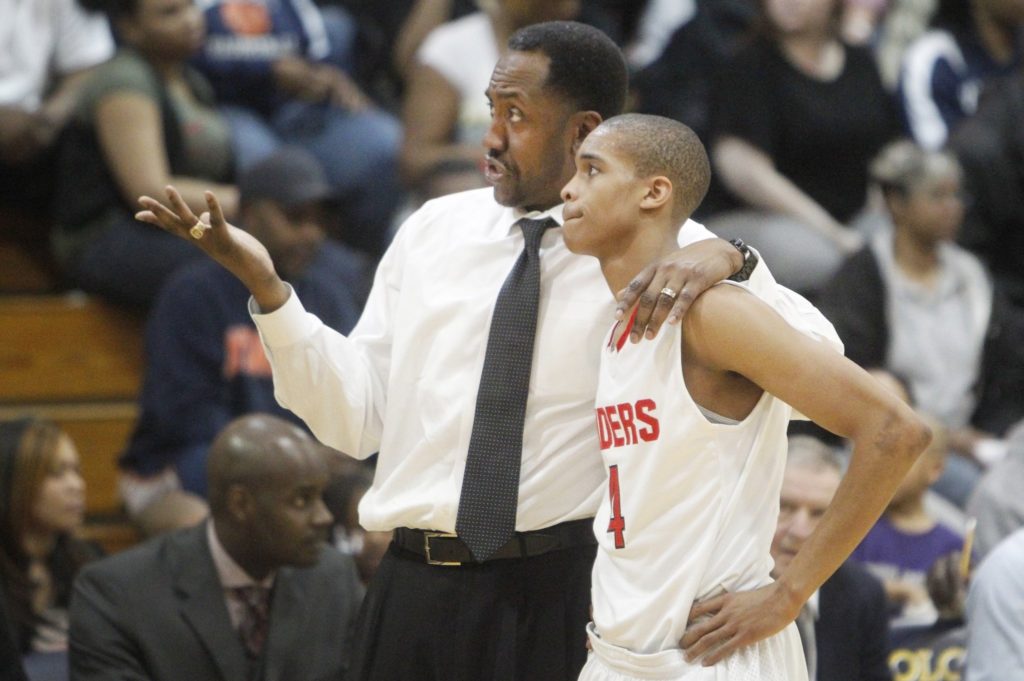
Creating a Basketball Mentorship Program: Pairing Experienced Leaders with Young Talent to Promote Growth, Accountability, and Team Culture
A well-structured basketball mentorship program can significantly enhance the development and growth of players and coaches. Mentorship programs provide guidance, support, and insight from experienced individuals, fostering personal and professional growth.
This article outlines the essential steps for creating a successful basketball mentorship program.

1. Define the Objectives of the Program
Establishing clear objectives helps set the direction and purpose of the mentorship program. Determine what you aim to achieve through the program, including specific goals for both mentors and mentees.
Player Development
Focus on improving players’ skills, understanding of the game, and overall performance. Set objectives related to technical skills, game knowledge, and personal development.
- Technical Skills: Define specific areas for improvement, such as shooting accuracy, defensive techniques, or playmaking abilities.
- Game Knowledge: Emphasize understanding offensive and defensive strategies, player roles, and game situations to enhance basketball IQ.
- Personal Development: Support players in developing leadership qualities, emotional resilience, and communication skills.
Coaching Development
Enhance the skills and knowledge of coaches through guidance on strategy, team management, and professional growth. Aim for improved coaching techniques, leadership skills, and strategic understanding.
- Coaching Techniques: Establish objectives around improving practice planning, player assessment, and skill development techniques.
- Leadership Skills: Encourage mentors to cultivate leadership skills within themselves, which they can pass on to their mentees.
Personal Growth
Support the personal and professional growth of both players and coaches. This includes building confidence, improving communication skills, and fostering leadership abilities.
- Confidence Building: Create a supportive environment where both players and coaches feel empowered to take risks and step outside their comfort zones.
- Communication Skills: Foster open dialogue, encouraging mentees to articulate their needs and challenges clearly.

2. Select Qualified Mentors
Choosing the right mentors is crucial for the success of the mentorship program. Mentors should possess relevant experience, skills, and a willingness to guide and support others.
Experience and Expertise
Select mentors with a strong background in basketball, including coaching experience, playing experience, or both. Ensure they have a deep understanding of the game and effective teaching methods.
- Diverse Backgrounds: Aim for a mix of mentors, including former players, experienced coaches, and individuals with specialized skills (e.g., sports psychology, conditioning).
Communication Skills
Choose mentors who are effective communicators and can provide constructive feedback. Good mentors should be able to convey complex concepts in an understandable way and offer support and encouragement.
- Mentoring Style: Consider mentors who can adapt their communication style to meet the needs of different mentees.
Commitment and Availability
Ensure mentors are committed to the program and have the time to dedicate to mentoring. They should be available for regular meetings and interactions with their mentees.
- Scheduled Interactions: Establish expectations for how often mentors and mentees should meet and communicate.
3. Match Mentors with Mentees
Matching mentors with mentees based on their needs, goals, and personalities enhances the effectiveness of the mentorship program. Consider the following factors when making matches:
Skill Level and Goals
Align mentees with mentors who have relevant experience and expertise in the areas the mentees wish to develop. For example, match a young player with a mentor who has experience in developing player skills.
- Skill Assessment: Evaluate the skills and aspirations of mentees to ensure they are paired with mentors who can help them reach their goals.
Personality and Communication Style
Consider the personalities and communication styles of both mentors and mentees. Ensure that their styles are compatible to foster a positive and productive mentoring relationship.
- Compatibility Check: Conduct brief interviews or assessments to gauge compatibility before finalizing matches.
Availability and Commitment
Match mentors and mentees based on their availability and commitment levels. Ensure that both parties can dedicate the necessary time and effort to the mentorship relationship.
- Scheduling Preferences: Take into account each participant’s schedule to facilitate regular interactions.

4. Establish a Structured Mentorship Plan
A structured plan helps ensure that the mentorship program is organized and effective. Develop a plan that outlines the goals, expectations, and activities for the mentorship relationship.
Set Clear Goals
Define specific goals for the mentorship relationship, including short-term and long-term objectives. Make sure both mentors and mentees understand and agree on these goals.
- Goal-Setting Sessions: Conduct sessions at the beginning of the program to establish and align on goals.
Create a Schedule
Develop a schedule for regular meetings and interactions between mentors and mentees. This helps maintain consistent communication and progress.
- Regular Check-Ins: Schedule periodic check-ins to assess progress and adjust goals as needed.
Outline Activities
Plan specific activities and tasks for the mentorship relationship, such as skill development exercises, game analysis, or personal development discussions. Ensure that these activities align with the goals of the program.
- Activity Diversity: Include a mix of on-court and off-court activities to address different aspects of player and coach development.
5. Provide Training and Resources
Equip mentors and mentees with the necessary training and resources to maximize the effectiveness of the program. Provide support and tools to enhance their experience and development.
Training for Mentors
Offer training sessions for mentors to enhance their mentoring skills. This might include workshops on effective communication, feedback techniques, and goal setting.
- Mentorship Workshops: Conduct workshops focused on best practices for mentoring, including building rapport and providing constructive feedback.
Resources for Mentees
Provide mentees with resources such as educational materials, training guides, and access to relevant tools. Ensure they have the support they need to achieve their goals.
- Resource Library: Create a library of resources, including books, articles, and online courses that mentees can access.
Ongoing Support
Offer ongoing support for both mentors and mentees throughout the program. This might include regular check-ins, additional resources, or troubleshooting any issues that arise.
- Support Network: Create a support network that allows mentors and mentees to connect with one another for additional guidance and encouragement.

6. Monitor Progress and Provide Feedback
Regularly monitor the progress of the mentorship program and provide feedback to both mentors and mentees. Assess the effectiveness of the program and make any necessary adjustments.
Evaluate Progress
Assess the progress of the mentorship relationships based on the goals set. Collect feedback from both mentors and mentees to gauge their experiences and identify areas for improvement.
- Progress Reports: Utilize progress reports to document advancements and challenges faced during the mentorship.
Provide Constructive Feedback
Offer constructive feedback to mentors and mentees to help them improve their skills and effectiveness. Encourage open communication and address any concerns or challenges.
- Feedback Sessions: Schedule periodic feedback sessions to discuss challenges and successes openly.
Adjust the Program
Make adjustments to the program based on feedback and progress evaluations. This might include modifying goals, changing mentors, or refining the mentorship activities.
- Program Evolution: Be flexible and willing to adapt the program as needed to better serve participants.

7. Celebrate Successes and Achievements
Recognizing and celebrating successes and achievements helps motivate participants and reinforce the value of the mentorship program.
Acknowledge Achievements
Recognize the accomplishments of both mentors and mentees. Celebrate milestones, improvements, and successes to boost morale and motivation.
- Celebration Events: Host events to celebrate achievements and acknowledge contributions from participants.
Share Success Stories
Highlight success stories and positive outcomes from the mentorship program. Share these stories with the broader community to showcase the program’s impact and value.
- Promotion: Use social media, newsletters, and community events to promote success stories and inspire others.
Reward Participation
Consider providing rewards or incentives for participants who demonstrate exceptional progress or commitment. This can include certificates, awards, or other forms of recognition.
- Incentive Programs: Establish an incentive program that recognizes outstanding contributions and encourages continued participation.
Creating a Basketball Mentorship Program Conclusion
Creating a successful basketball mentorship program involves defining clear objectives, selecting qualified mentors, matching mentors with mentees, and providing structured plans and resources.
By focusing on these key elements, you can build a program that supports the development and growth of both players and coaches.
Effective mentorship enhances skills, fosters personal growth, and contributes to the overall success of the basketball program.



